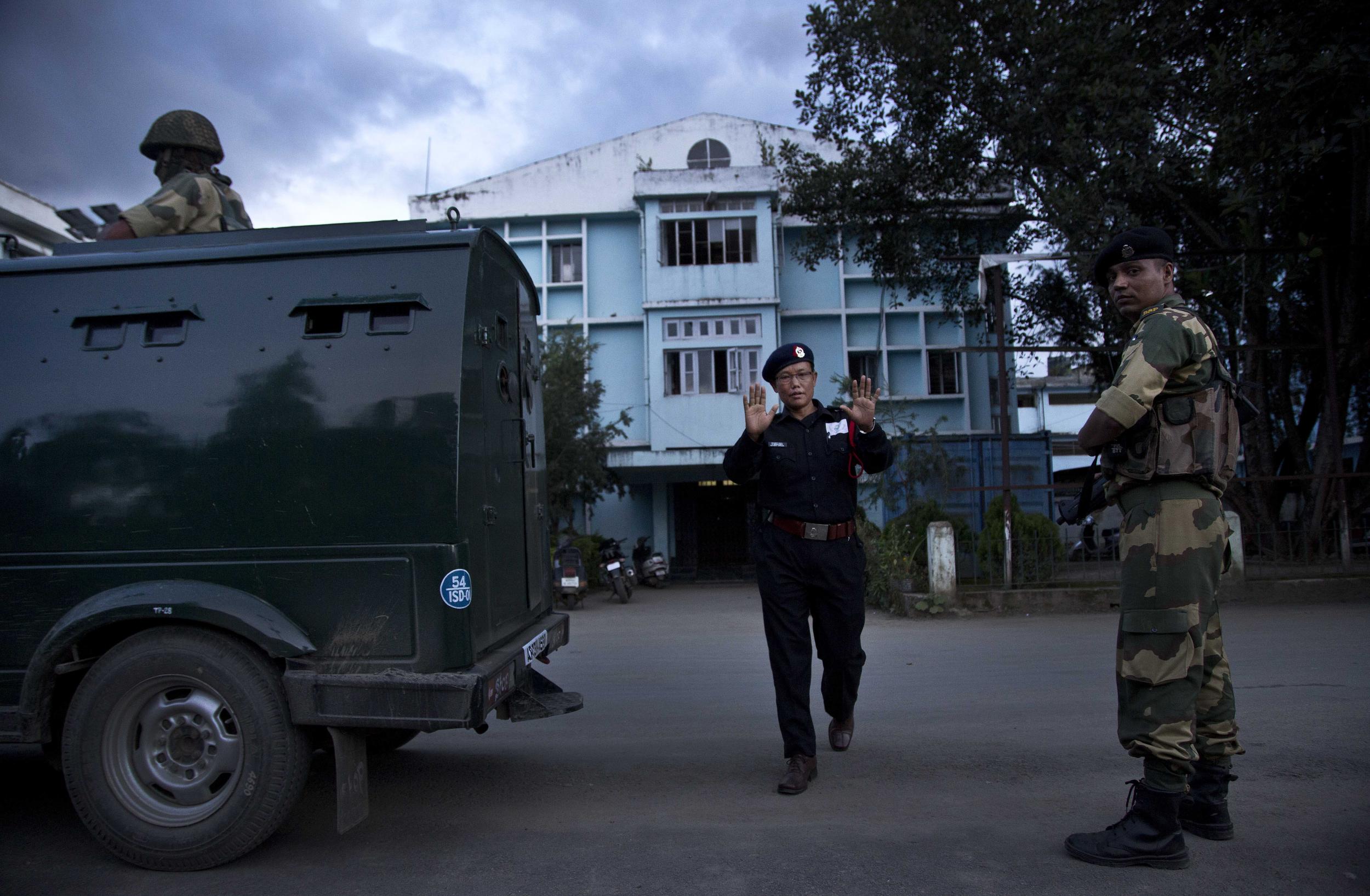Indian political activist Irom Sharmila brings 16-year hunger strike to an end
Irom Sharmila has become known as the 'Iron Lady of Manipur

Your support helps us to tell the story
From reproductive rights to climate change to Big Tech, The Independent is on the ground when the story is developing. Whether it's investigating the financials of Elon Musk's pro-Trump PAC or producing our latest documentary, 'The A Word', which shines a light on the American women fighting for reproductive rights, we know how important it is to parse out the facts from the messaging.
At such a critical moment in US history, we need reporters on the ground. Your donation allows us to keep sending journalists to speak to both sides of the story.
The Independent is trusted by Americans across the entire political spectrum. And unlike many other quality news outlets, we choose not to lock Americans out of our reporting and analysis with paywalls. We believe quality journalism should be available to everyone, paid for by those who can afford it.
Your support makes all the difference.An Indian political activist who has been on hunger strike for 16 years has brought her protest to an end.
Food last passed the lips of Irom Sharmila on November 5, 2000 – since then she has been forcefed by tube.
She is believed to be one of - if not the - world’s longest hunger strikers.
Ms Sharmila has been protesting laws which let troops shoot to kill suspected rebels without fear of possible prosecution and to arrest suspected militants without a warrant.
The law is controversial, with many claiming the powers are abused and allow atrocities to occur under their guise.
Doctors say Ms Sharmila might have to remain on a liquid diet for a few days before slowly starting on solids after she breaks her fast at a court.
She will then be allowed to walk free.

Her brother Irom Singhajit told the Press Trust of India: “We don't know where she will go after her release. If she wants to come home and stay with us, we are ready to welcome her. But it is her desire.”
Ms Sharmila's sole aim is the repeal of the Armed Forces Special Powers Act which affords the military powers to kill individuals they suspect are acting against the state in “disturbed areas” of India.
She was 28 when 10 civilians were killed and 42 others injured by military who opened fire while they were waiting at a bus stop, an incident which became known as the “Malom Massacre”.
The activist, from the troubled state of Manipur in north-eastern India, began fasting soon after.
Three days after she started her strike she was arrested for attempting suicide and has been re-arrested and released repeatedly ever since.

Ms Sharmila has only seen her mother once since here struggle began for fear it break her willpower.
She once reportedly said: “[The day the law] is repealed I will eat rice from my mother's hand.”
The 44-year-old announced she will make her first foray into politics last month, at the same time she revealed she would end her hunger protest.
She intends to stand as an independent candidate in the Manipur state elections and carry on her plight to revoke the Armed Forces Special Powers Act.
The law is in effect in Indian-ruled Kashmir and north-eastern areas marred by separatist insurgencies.
Join our commenting forum
Join thought-provoking conversations, follow other Independent readers and see their replies
Comments